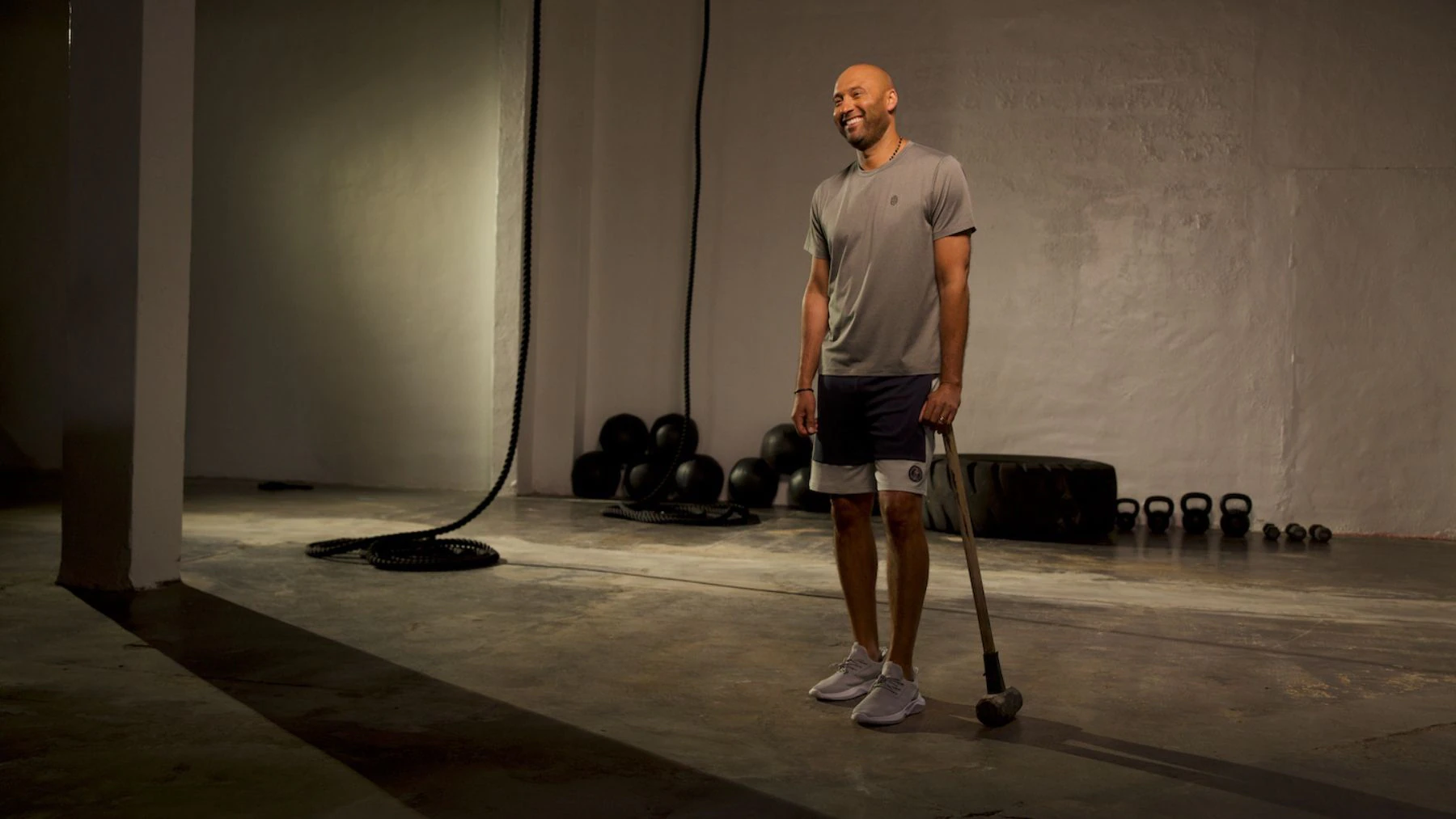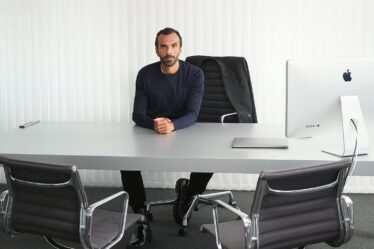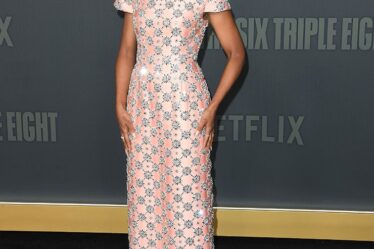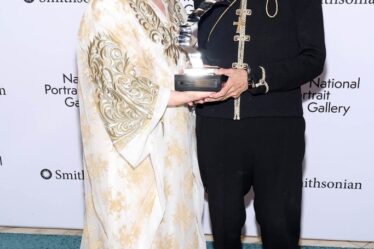
Does activewear need another brand? Derek Jeter, Wayne Gretzky and Misty Copeland think so.
On Tuesday, the former professional baseball player, Canadian hockey player and American ballet dancer are launching Greatness Wins, a new fitness apparel brand, together with Chris Riccobono, a co-founder of the menswear brand Untuckit.
Products include $69 basketball shorts and $99 performance joggers. The label is launching online and Riccobono said it will likely open a store or two within the next year and a half and is also open to wholesale partnerships.
Greatness Wins is launching in a market with massive opportunity — the global sportswear industry hit $384 billion last year, according to McKinsey & Company, and is expected to grow 8 to 10 percent annually.
The fitness apparel space has also exploded over the last two years, with giants like Lululemon hitting record sales and scores of startups finding new customers just getting into exercise. But while some brands have focussed on athleisure, a growing category of casual apparel suitable for both fitness and everyday life, others, like Greatness Wins, are developing clothes made specifically for sports.
“We’re going to bring the best performance product to market, and it’s going to be tested rigorously, and meet specs consistently,” said Riccobono, who is still at Untuckit and is also now chief executive at Greatness Wins.
Athletes have endless options — especially from giants like Nike, Under Armour and Adidas. Jeter, who held a reported 10-year $100 million deal with Nike before it ended, told BoF he sees an opportunity in developing a brand that’s focused on sizing and quality.
“One of the things I’ve learned throughout my career is just how important consistency is,” Jeter said. “Consumers want to know that when they order something, it’s going to be the same fit, every single time, and when you wash your clothes, it’s the same after you wash. We’re banking on quality.”
Riccobono first linked up with Gretzky, who is helping the label develop its golf apparel, when the NHL star and former head coach invested in Untuckit in 2018. Industry friends helped connect Riccobono to Jeter, who told BoF he agreed to work with Riccobono because of Untuckit’s success in menswear (Untuckit is now a $300 million business.) Jeter then recommended the brand bring on Copeland, who will launch the brand’s women’s products this spring.
Riccobono said all four co-founders own the brand but declined to share the percentage makeup of ownership, or how much money the brand has raised.
Jeter, who stepped down as chief executive of the Miami Marlins baseball team in February, said he chose to be closely involved with the brand’s design and development process. He’s following a similar path to athletes like the NBA’s Russell Westbrook and Olympic track runner Allyson Felix, who are foregoing the old celebrity playbook of licensed deals with established fashion brands and are instead running their own labels.
“I just didn’t want to put my name on a product and say, ‘hey, go buy this product,’” said Jeter. “I wanted to be a part of the development process and … sit down and be a part of the marketing campaigns and make decisions.”
Greatness Wins is also coming to market with a timely launch for Jeter. A documentary about the legendary baseball player, “The Captain,” by ESPN Films, debuts July 18, and the Hall of Famer has done several interviews for the film in Greatness Wins apparel. Jeter also joined Instagram in May, where he is helping promote the brand (Gretzky and Copeland are promoting the brand on social media, too).
Riccobono acknowledged Greatness Wins, which plans to launch footwear next, faces a crowded market competition. He said the appeal of athletes like Jeter, Copeland and Gretzky as co-founders will give the brand credibility. That these celebrity athletes represent a wide range of sports is also part of the equation; Greatness Wins will have a broader approach to fitness than other activewear startups targeting specific sports like pickleball or rugby.
The label will also focus on producing a smaller product assortment.
“The big athletic brands have … 800 shorts, but you don’t need 100,00 products,” said Riccobono. “We’ll be educating, on what product you wear to what activity.”



